Theme: Exploring new frontiers and novel approaches in Pediatric Care and Pediatric Infections
Pediatric Infections 2016
OMICS International Conferences invites all the participants from all over the world to attend 'International Conference on Pediatric Care and Pediatric Infectious Disease' during August 24-25, 2016 in Philadelphia, USA which includes prompt keynote presentations, Oral talks, Poster presentations and Exhibitions.
Pediatric Infections 2016 is a global platform to discuss and learn about Pediatric care, Pediatric Infectious Disease, General Pediatrics, Adolescent Medicine, Pediatric Allergy, Immunology, Pediatric Haematology/Oncology, Pediatric Critical Care, Emergency Medicine, Pediatric Gastroenterology, Nutrition, Pediatric Nephrology/Urology, Neonatology, Pediatric Cardiology, Genetics, Pediatric Pulmonology, Pediatric Surgery, Pediatric Endocrinology, Rheumatology, Pediatric Neurology, Pediatric Ophthalmology, Dermatology, Pediatric Psychiatry, Radiology, Pediatric Nursing, HIV Infection.
Track 1: Pediatric Care
Pediatrics is the branch of medicine that deals with the medical care of infants, children, and adolescents, and the age limit usually ranges from birth up to 18 years of age.
Related Conferences: Pediatrics Conferences September 14-16, 2016 Amsterdam, The Netherlands; Pediatric Surgery Conferences September 14-16, 2016 Amsterdam, Netherlands; Pediatric Dermatology Conferences October 10-11, 2016 Manchester, UK; Neonatology Conferences November 14-16, 2016 Valencia, Spain; Neonatal Conferences November 14-16, 2016 Valencia, Spain; Pediatric Neurology Conference November 14-16, 2016 Valencia, Spain; 90th Annual Meeting of the Canadian Pediatric Society Jun 22-25 2016 Canada; 28th International Pediatric Association Congress of Pediatrics Aug 17-22 2016, Canada; 2016 American Academy of Pediatrics National Conference & Exhibition October 22-25 2016, USA; 15th Asian Pacific Congress of Pediatrics January 21-24 2016, India; 6th Congress of the European Academy of Pediatric Societies October 21-25 2016, Switzerland.
Track 2: Pediatric Infectious Diseases
The aim of the study of Pediatrics is to reduce infant and child rate of deaths, control the spread of infectious disease, promote healthy lifestyles for a long disease-free life and help ease the problems of children and adolescents. Pediatric infectious diseases are the diseases which will affect the child has a recurring or persistent disease caused by an infectious agent such as bacteria, a fungus, a parasite, or other rare infection. Some of the Pediatric infectious diseases include bone infections, skin infections, joint infections, blood infections. The major causes for Pediatric infectious diseases are the parasitic infection, bacterial infection and viral infections etc.
Related Conferences: Pediatrics Conferences September 14-16, 2016 Amsterdam, The Netherlands; Pediatric Surgery Conferences September 14-16, 2016 Amsterdam, Netherlands; Pediatric Dermatology Conferences October 10-11, 2016 Manchester, UK; Neonatology Conferences November 14-16, 2016 Valencia, Spain; Neonatal Conferences November 14-16, 2016 Valencia, Spain; Pediatric Neurology Conference November 14-16, 2016 Valencia, Spain; The 2nd International Neonatology Association Conference July 15-17 2016, Austria; 43rd Annual Meeting of the Society for Neonatology and Pediatric Intensive Care June 08-10 2017, Germany; NEO: The Conference for Neonatology February 25-28 2016, USA; Council of International Neonatal Nurses Conference August 14 - 17 2016, Canada.
Track 3: General Pediatrics and Adolescent medicine
The aim of the study of Pediatrics is to reduce infant and child rate of deaths, control the spread of infectious disease, promote healthy lifestyles for a long disease-free life and help ease the problems of children and adolescents. It can be acknowledged that this can be reached by learning the major and primary subject on General Pediatrics. General Pediatrics includes the basic treatments involved for the betterment of Pediatric health. The most significant problems can be due to nutritional deficiencies to the overall health of infants and children because growth and development can be seriously hindered by shortages in essential vitamins or nutrients.
Adolescent medicine or geriatrics is a medical subspecialty that focuses on care of patients who are in the adolescent period of development, generally ranging from the last years of elementary school until graduation from high school. Patients have generally entered puberty, which typically begins between the ages of 9 and 11 for girls and between 11 and 13 for boys.
Related Conferences: Pediatrics Conferences September 14-16, 2016 Amsterdam, The Netherlands; Pediatric Surgery Conferences September 14-16, 2016 Amsterdam, Netherlands; Pediatric Dermatology Conferences October 10-11, 2016 Manchester, UK; Neonatology Conferences November 14-16, 2016 Valencia, Spain; Neonatal Conferences November 14-16, 2016 Valencia, Spain; Pediatric Neurology Conference November 14-16, 2016 Valencia, Spain; 90th Annual Meeting of the Canadian Pediatric Society Jun 22-25 2016 Canada; 28th International Pediatric Association Congress of Pediatrics Aug 17-22 2016, Canada; 2016 American Academy of Pediatrics National Conference & Exhibition October 22-25 2016, USA; 15th Asian Pacific Congress of Pediatrics January 21-24 2016, India; 6th Congress of the European Academy of Pediatric Societies October 21-25 2016, Switzerland.
Track 4: Pediatric Allergy and Immunology
Pediatric Allergy is an important subject to be learnt in order to promote understanding and advance the treatment of respiratory, allergic, and immunologic diseases in children. It emphasizes the epidemiologic research on the most common chronic illnesses of children—asthma and allergies—as well as many less common and rare diseases. Swollen or enlarged adenoids and Tonsils are common in children. Environmental and food allergies in children occur when the children’s immune system reacts to normal harmless substances present in the environment. Pneumonia is often caused by viruses, such as the influenza virus (flu) and adenovirus. Other viruses, such as respiratory syncytial virus (RSV) and human meta pneumonia virus, are common causes of pneumonia in young kids and babies. Some of the Allergic reactions in children include,red eyes, atopic dermatitis (eczema), itchiness, runny nose, urticarial (hives), an asthma attack and sinusitis.
Pediatric immunology is a branch of Pediatrics which deals with immunological or allergic disorders of children. Pediatric immunology plays major role in understanding the cellular and molecular mechanisms underlying the immune system and it has seriously involved in the development of new diagnostic tests and treatment. Some of the major pediatric immunology diseases are community acquired infections, vaccination & complications, Pediatric HIV and AIDS and congenital or acquired immune deficiencies. As of 2013, of the estimated 35.3 million people worldwide livings with HIV approximately 3.2 million are children under 15 years of age. An estimated 260,000 children were newly infected with HIV in 2012; further, nearly 700 children are newly infected with HIV every day. Reflecting this imperative, it is equally important to learn about the diagnosing and caring of Pediatric HIV patients.
Related Conferences: Pediatrics Conferences September 14-16, 2016 Amsterdam, The Netherlands; Pediatric Surgery Conferences September 14-16, 2016 Amsterdam, Netherlands; Pediatric Dermatology Conferences October 10-11, 2016 Manchester, UK; Neonatology Conferences November 14-16, 2016 Valencia, Spain; Neonatal Conferences November 14-16, 2016 Valencia, Spain; Pediatric Neurology Conference November 14-16, 2016 Valencia, Spain; 34th Annual Meeting of the European Society for Pediatric Infectious Diseases May 10-14 2016, UK; The 15th Annual Pediatric Infectious Diseases Research Conference March 4-5 2016, USA; 8th Asian Congress of Pediatric Infectious Diseases November 7-10 2016, Thailand; 2016 Pediatric Infectious Disease Conference February 10-13 2016, USA
Track 5: Pediatric Haematology/Oncology
Pediatric haematology is the branch of Pediatrics dealing with study, diagnosis, treatment and prevention different types of blood disorders including the study of bleeding and clotting disorders in children. The study of Tumour Cell Biology reviews applications concerned with signal transduction mechanisms in neoplastic cells, and regulation of tumour cell phenotype and behaviour, and tumour progression. It important to study causes, risk factors and the hypothesis in Pediatrics with haematology disorders. A medical practitioner who specializes in this field of Pediatric haematology is called Pediatric haematologist. It is important that one should be familiar with the educational and preventive measures in order to prevent children being affected with blood disorders.
Pediatric Oncology can be frightening to hear that a child has cancer or a blood disorder. It is acknowledged that neuroblastoma is the most common extra cranial solid tumour of infancy. It is an embryonic malignancy of the sympathetic nervous system arising from neuroblasts (pluripotent sympathetic cells). Researchers are looking for genetic source of childhood cancer. The common blood disorders in children are leukaemia and lymphoma. Leukaemia is a disease of the white blood cells. The most common type of Pediatric leukaemia is acute lymphocytic leukaemia. Other types of leukaemia that occur less frequently in children are acute myeloid leukaemia, and chronic myeloid leukaemia. Lymphomas (Hodgkin and non-Hodgkin lymphoma) are the third most common cancer in children. Based on the characteristics and microscopic appearance of the cancer cell, the Pediatric lymphomas are divided into Hodgkin Lymphoma and non-Hodgkin lymphoma. Hence learning more about the advances in cancer detection and images becomes a prominent subject to cure childhood cancer.
Related Conferences: Pediatrics Conferences September 14-16, 2016 Amsterdam, The Netherlands; Pediatric Surgery Conferences September 14-16, 2016 Amsterdam, Netherlands; Pediatric Dermatology Conferences October 10-11, 2016 Manchester, UK; Neonatology Conferences November 14-16, 2016 Valencia, Spain; Neonatal Conferences November 14-16, 2016 Valencia, Spain; Pediatric Neurology Conference November 14-16, 2016 Valencia, Spain; SIOPE 4th Paediatric Oncology Conference January 20–21 2016, Belgium; 40th Annual Association of Pediatric Oncology Social Work Conference April 13-15 2016, Rhode Island; 90th Annual Meeting of the Canadian Pediatric Society Jun 22-25 2016 Canada; 28th International Pediatric Association Congress of Pediatrics Aug 17-22 2016, Canada; 2016 American Academy of Pediatrics National Conference & Exhibition October 22-25 2016, USA
Track 6: Pediatric Critical Care and Emergency Medicine
Emergent management of Pediatric patients with fever is a common challenge. Children with fever account for as many as 20% of pediatric emergency department (ED) visits, and the underlying disorders in these cases range from mild conditions to the most serious of bacterial and viral illnesses. Asphyxia cardiac arrest is more common than VF cardiac arrest in infants and children, and ventilations are extremely important in Pediatric resuscitation. It occurs in circumstances that obstruct the airway or otherwise prevent the intake of oxygen. Many congenital and acquired heart diseases may present with heart failure. This requires immediate management of common cardiac emergencies in children beyond the neonatal period, illustrated with typical clinical scenarios, ECG recordings or X-ray/echocardiographic images. But it is important to learn about radiation consequences of CT in children. Because of the rapidly growing use of Pediatric CT and the potential for increased radiation exposure to children undergoing these scans, special considerations should be applied when using Pediatric CT.
Pediatric Critical Care Medicine is a peer-reviewed medical journal that covers intensive care treatment of children and new-borns. It is the official journal of the Society of Critical Care Medicine, the World Federation of Pediatric Intensive and Critical Care Societies, the Pediatric Intensive Care Society, the Latin American Society of Pediatric Intensive Care, and the Japanese Society of Pediatric Intensive and Critical Care.
Related Conferences: Pediatrics Conferences September 14-16, 2016 Amsterdam, The Netherlands; Pediatric Surgery Conferences September 14-16, 2016 Amsterdam, Netherlands; Pediatric Dermatology Conferences October 10-11, 2016 Manchester, UK; Neonatology Conferences November 14-16, 2016 Valencia, Spain; Neonatal Conferences November 14-16, 2016 Valencia, Spain; Pediatric Neurology Conference November 14-16, 2016 Valencia, Spain; Association of Pediatric Haematology/Oncology Nurses 40th Annual Conference And Exhibit September 29-October 01 2016, Indiana; 34th Annual Meeting Of The Nordic Society For Pediatric Haematology And Oncology May 27-31 2016, Iceland.
Track 7: Pediatric Gastroenterology and Nutrition
Gastrointestinal disorders in children range from minor to life threatening, and short- to long-term or chronic. Neonatal Jaundice is one of the most common conditions needing medical attention in new-born babies. Gastrointestinal food allergies are not rare in infants and children. Gastrointestinal (GI) endoscopic procedure a Pediatric endoscopy has become an essential modality for evaluation and treatment of GI diseases. Complex gastrointestinal surgery is one of the common methods to treat GI disorder in children. The principle diseases concerned with Pediatric gastroenterology are acute diarrhoea, gastritis, persistent vomiting and problems with the development of the gastric tract.
Nutrition is the process of consuming, absorbing, and using nutrients needed by the body for growth, development, and maintenance of life. To receive adequate, appropriate nutrition, people need to consume a healthy diet, which consists of a variety of nutrients—the substances in foods that nourish the body. A healthy diet enables people to maintain a desirable body weight and composition (the percentage of fat and muscle in the body) and to do their daily physical and mental activities. If people consume too much food, obesity may result. If they consume large amounts of certain nutrients, usually vitamins or minerals, harmful effects (toxicity) may occur. If people do not consume enough nutrients, a nutritional deficiency disorder may result.
Related Conferences: Pediatrics Conferences September 14-16, 2016 Amsterdam, The Netherlands; Pediatric Surgery Conferences September 14-16, 2016 Amsterdam, Netherlands; Pediatric Dermatology Conferences October 10-11, 2016 Manchester, UK; Neonatology Conferences November 14-16, 2016 Valencia, Spain; Neonatal Conferences November 14-16, 2016 Valencia, Spain; Pediatric Neurology Conference November 14-16, 2016 Valencia, Spain; International Allergy Conference March 29-30 2016, Spain; 18th International Conference on Allergy, Asthma and Immunology June 1 - 2 2016, UAE.
Track 8: Pediatric Nephrology/Urology
Pediatric Nephrology specializes in the diagnosis and management of children with a variety of acute and chronic kidney-related disorders. The division evaluates and treats hypertension, haematuria, proteinuria, renal tubular acidosis, nephrolithiasis, glomerulonephritis and kidney failure. Pediatric Nephritis is clinically and genetically heterogeneous entity characterized by either relapsing and course with significant morbidity and mortality resulting from complications of the disease itself, and its therapy.
Related Conferences: Pediatrics Conferences September 14-16, 2016 Amsterdam, The Netherlands; Pediatric Surgery Conferences September 14-16, 2016 Amsterdam, Netherlands; Pediatric Dermatology Conferences October 10-11, 2016 Manchester, UK; Neonatology Conferences November 14-16, 2016 Valencia, Spain; Neonatal Conferences November 14-16, 2016 Valencia, Spain; Pediatric Neurology Conference November 14-16, 2016 Valencia, Spain; 15th International Congress on Pediatric Pulmonology June 23-26 2016, Italy; 28th International Pediatric Association Congress of Pediatrics Aug 17-22 2016, Canada; 2016 American Academy of Pediatrics National Conference & Exhibition October 22-25 2016, USA; 15th Asian Pacific Congress of Pediatrics January 21-24 2016, India; 6th Congress of the European Academy of Pediatric Societies October 21-25 2016, Switzerland.
Track 9: Neonatology
Neonatology is a subspecialty of Pediatrics that consists of the medical care of new-born infants, especially the ill or premature newborn infant. It is a hospital-based specialty, and is usually practiced in neonatal intensive care units (NICUs). Neonatal infection can be acquired in utero transplacentally, through the birth canal during delivery (intrapartum), and from external sources after birth (postpartum). In utero infection, which can occur any time before birth, results from overt or subclinical maternal infection. Consequences depend on the agent and timing of infection in gestation and include spontaneous abortion, intrauterine growth restriction, premature birth, stillbirth, congenital malformation (e.g., rubella), and symptomatic (e.g., cytomegalovirus [CMV], toxoplasmosis, syphilis) or asymptomatic (e.g., CMV) neonatal infection. Common viral agents include herpes simplex viruses, HIV, CMV, and hepatitis B.
Related conferences: Pediatrics Conferences September 14-16, 2016 Amsterdam, The Netherlands; Pediatric Surgery Conferences September 14-16, 2016 Amsterdam, Netherlands; Pediatric Dermatology Conferences October 10-11, 2016 Manchester, UK; Neonatology Conferences November 14-16, 2016 Valencia, Spain; Neonatal Conferences November 14-16, 2016 Valencia, Spain; Pediatric Neurology Conference November 14-16, 2016 Valencia, Spain; International Conference on Interventional Cardiology September 12-14 2016, Germany; 19th Annual Update on Pediatric and Congenital Cardiovascular Disease Feb 24-28 2016, USA; 50th Annual Meeting of the Association for European Paediatric and Congenital Cardiology June 1-4 2016, Rome; 18th International Conference on Pediatric Cardiology January 26 - 27 2016, Saudi Arabia; 7th World Congress of Pediatric Cardiology & Cardiac Surgery June 18-23 2017, Turkey.
Track 10: Pediatric Cardiology and Genetics
The study of Pediatric Cardiology is responsible for the diagnosis of congenital heart defects, performing diagnostic procedures such as echocardiograms, cardiac catheterizations and electrophysiology studies. The increasing number of neonates with congenital heart defects referred to the neonatal intensive care unit reflects the increasing awareness that the defects may be present. Chest radiography and ECG rarely assist in the neonatal diagnosis. Congestive heart failure in the fetus, or hydrops, can be detected by performing fetal echocardiography. In this case, congestive heart failure may represent underlying anemia (e.g. Rh sensitization, fetal-maternal transfusion), arrhythmias (usually supraventricular tachycardia), or myocardial dysfunction (myocarditis or cardiomyopathy). Many of the Pediatric heart defects such as patent ductus arteriosus interruption, vascular ring division, pericardial window, diaphragm placation, thoracic duct ligation, ligation of collateral vessels have been repaired using Pediatric interventional cardiology. The barriers and challenges to achieving routinely applicable Tissue Engineered and Regenerative Cardiac Surgery Methods are also explored as is a novel concept for the Cardiac Hybrid Operating Room Suite of the 21st Century. Apart from these techniques nursing and care for Pediatric cardiac patients also plays an important role for the cure of Pediatric cardiac patients.
Most children are born healthy with no medical problems or birth defects. However, some children are born with differences in body structure, brain development, or body chemistry that can lead to problems with health, development, school performance, and/or social interaction. Pediatric geneticists are trained to identify the causes and natural history of these disorders. They may suggest tests and treatments that can help in understanding and caring for your child’s condition. Pediatric geneticists also can help families understand whether some conditions are hereditary (coming from the genes) and offer testing to family members who may be at risk for having children with similar problems.
Related Conferences: Pediatrics Conferences September 14-16, 2016 Amsterdam, The Netherlands; Pediatric Surgery Conferences September 14-16, 2016 Amsterdam, Netherlands; Pediatric Dermatology Conferences October 10-11, 2016 Manchester, UK; Neonatology Conferences November 14-16, 2016 Valencia, Spain; Neonatal Conferences November 14-16, 2016 Valencia, Spain; Pediatric Neurology Conference November 14-16, 2016 Valencia, Spain; 14th International Child Neurology Congress May 1-5 2016, The Netherlands; Child Neurology Society 45th Annual Meeting October 26-29 2016, Canada; British Paediatric Neurology Association Annual Conference January 27-29 2016, UK; 3rd Pan-Slavic Congress of Child Neurology October 19-22 2016, Croatia; International Conference Of Pediatric Neurology of Egyptian Specialized Society of pediatric Neurology And Neurodisability March 2-3 2016, Egypt
Track 11: Pediatric pulmonology
Pediatric pulmonology is a medical specialty that deals with diagnosis and treatment of diseases involving respiratory tract. Pediatric pulmonology is a combination of both pulmonology and pediatrics. Pediatric pulmonologists are specially trained in pulmonary pediatric diseases and conditions of the chest, particularly pneumonia, asthma, tuberculosis, complicated chest infections, etc. Epiglottitis is a cause of Pediatric dyspnoea that should be considered by the EMT when evaluating children in respiratory distress. Hence it is important to study the diagnosis, immunization and preventive measure of these diseases.
Related Conferences: Pediatrics Conferences September 14-16, 2016 Amsterdam, The Netherlands; Pediatric Surgery Conferences September 14-16, 2016 Amsterdam, Netherlands; Pediatric Dermatology Conferences October 10-11, 2016 Manchester, UK; Neonatology Conferences November 14-16, 2016 Valencia, Spain; Neonatal Conferences November 14-16, 2016 Valencia, Spain; Pediatric Neurology Conference November 14-16, 2016 Valencia, Spain; 4th Euro Obesity & Endocrinology Specialists Annual Meeting March 29-31 2016, Spain; Pediatric Endocrine Nursing Society (PENS) Meeting May 12-15 2016, USA; 10th International Meeting of Pediatric Endocrinology September 14-17 2017, USA; Pediatric Endocrine Society Annual Meeting April 30–May 3 2016, USA; 55th Annual Meeting of the European Society for Paediatric Endocrinology September 10–12 2016, France; 9th Asia Pacific Pediatric Endocrine Society Scientific Meeting November 17-20 2016, Japan.
Track 12: Pediatric surgery
Pediatric surgery is a combination of both Pediatrics and surgery. It is a branch of Pediatrics which deals with all the surgical operations of children. Pediatric surgery is responsible for the treatment of many disorders through surgical operations in children. Pediatric surgery can be mainly divided into sub categories, known as, Pediatric cardiothoracic surgery, Pediatric surgical oncology, Pediatric nephrological surgery, Pediatric neurosurgery, Pediatric urological surgery, Pediatric hepatological surgery, Pediatric orthopaedic surgery, Pediatric vascular surgery and Pediatric oncological surgery.
Related Conferences: Pediatrics Conferences September 14-16, 2016 Amsterdam, The Netherlands; Pediatric Surgery Conferences September 14-16, 2016 Amsterdam, Netherlands; Pediatric Dermatology Conferences October 10-11, 2016 Manchester, UK; Neonatology Conferences November 14-16, 2016 Valencia, Spain; Neonatal Conferences November 14-16, 2016 Valencia, Spain; Pediatric Neurology Conference November 14-16, 2016 Valencia, Spain; 4th Euro Obesity & Endocrinology Specialists Annual Meeting March 29-31 2016, Spain; Pediatric Endocrine Nursing Society (PENS) Meeting May 12-15 2016, USA; 10th International Meeting of Pediatric Endocrinology September 14-17 2017, USA; Pediatric Endocrine Society Annual Meeting April 30–May 3 2016, USA; 55th Annual Meeting of the European Society for Paediatric Endocrinology September 10–12 2016, France; 9th Asia Pacific Pediatric Endocrine Society Scientific Meeting November 17-20 2016, Japan.
Track 13: Pediatric Endocrinology and Rheumatology
Pediatric Endocrinology is a medical subspecialty dealing growth disorders and sexual differentiation in childhood, as well as neonatal diabetes and other disorders of the endocrine glands. It also includes the study of the most common types of diabetes are type 1 and type 2 diabetes. There is another type of diabetes that is often misdiagnosed as type 1 or type 2diabetes, called monogenic diabetes which is seen in children.
Pediatric Rheumatology is a sub-specialty in internal medicine and Pediatrics, devoted to diagnosis and therapy of rheumatic diseases. Clinicians who specialize in rheumatology are called rheumatologists. Rheumatologists deal mainly with clinical problems involving joints, soft tissues, autoimmune diseases, vacuities, and heritable connective tissue disorders. Many of these diseases are now known to be disorders of the immune system. Rheumatology is increasingly the study of immunology.
Related Conferences: Pediatrics Conferences September 14-16, 2016 Amsterdam, The Netherlands; Pediatric Surgery Conferences September 14-16, 2016 Amsterdam, Netherlands; Pediatric Dermatology Conferences October 10-11, 2016 Manchester, UK; Neonatology Conferences November 14-16, 2016 Valencia, Spain; Neonatal Conferences November 14-16, 2016 Valencia, Spain; Pediatric Neurology Conference November 14-16, 2016 Valencia, Spain; 90th Annual Meeting of the Canadian Pediatric Society Jun 22-25 2016 Canada; 28th International Pediatric Association Congress of Pediatrics Aug 17-22 2016, Canada; 2016 American Academy of Pediatrics National Conference & Exhibition October 22-25 2016, USA; 15th Asian Pacific Congress of Pediatrics January 21-24 2016, India; 6th Congress of the European Academy of Pediatric Societies October 21-25 2016, Switzerland.
Track 14 Pediatric Neurology
Researchers are engaged in a variety of laboratory and clinical research programs to extend their understanding of the developing nervous system and pathologic processes that underlie neurological disorders in children. The most common neurological disease is Pediatric epilepsy. Approximately 70% of children who suffer epilepsy during their childhood eventually outgrow it. Magnetic resonance spectroscopy (MRS) is a diagnostic tool used for inherited metabolic disorders. To date, MRS has been limited to the assessment for cerebral lactic acidosis in mitochondrial disorders in children. Neuromuscular and genetic metabolic diseases are the most common genetic related disorders in children. The new frontier to improve outcomes in critically ill Pediatric patients with neurological illness is Pediatric Neurocritical Care.
Related Conferences: Pediatrics Conferences September 14-16, 2016 Amsterdam, The Netherlands; Pediatric Surgery Conferences September 14-16, 2016 Amsterdam, Netherlands; Pediatric Dermatology Conferences October 10-11, 2016 Manchester, UK; Neonatology Conferences November 14-16, 2016 Valencia, Spain; Neonatal Conferences November 14-16, 2016 Valencia, Spain; Pediatric Neurology Conference November 14-16, 2016 Valencia, Spain; The 2nd International Neonatology Association Conference July 15-17 2016, Austria; 43rd Annual Meeting of the Society for Neonatology and Pediatric Intensive Care June 08-10 2017, Germany; NEO: The Conference for Neonatology February 25-28 2016, USA; Council of International Neonatal Nurses Conference August 14 - 17 2016, Canada.
Track 15: Pediatric ophthalmology and Dermatology
Pediatric ophthalmology is a sub-speciality of ophthalmology concerned with eye diseases, visual development, and vision care in children. Pediatric ophthalmologists focus on the development of the visual system and the various diseases that disrupt visual development in children. They also have expertise in managing the various ocular diseases that affect children. Pediatric ophthalmologists are qualified to perform complex eye surgery as well as to manage children's eye problems using glasses and medications.
Dermatology is the branch of medicine dealing with the skin, nails, hair and its diseases. It is a specialty with both medical and surgical aspects. A dermatologist treats diseases, in the widest sense and some cosmetic problems of the skin, scalp, hair, and nails.
Related Conferences: Pediatrics Conferences September 14-16, 2016 Amsterdam, The Netherlands; Pediatric Surgery Conferences September 14-16, 2016 Amsterdam, Netherlands; Pediatric Dermatology Conferences October 10-11, 2016 Manchester, UK; Neonatology Conferences November 14-16, 2016 Valencia, Spain; Neonatal Conferences November 14-16, 2016 Valencia, Spain; Pediatric Neurology Conference November 14-16, 2016 Valencia, Spain; 90th Annual Meeting of the Canadian Pediatric Society Jun 22-25 2016 Canada; 28th International Pediatric Association Congress of Pediatrics Aug 17-22 2016, Canada; 2016 American Academy of Pediatrics National Conference & Exhibition October 22-25 2016, USA; 15th Asian Pacific Congress of Pediatrics January 21-24 2016, India; 6th Congress of the European Academy of Pediatric Societies October 21-25 2016, Switzerland.
Track 16: Pediatric Psychiatry and Radiology
Pediatric psychology is a multidisciplinary field of both scientific research and clinical practice which attempts to address the psychological aspects of illness, injury, and the promotion of health behaviours in children, adolescents, and families in a Pediatric health setting. Psychological issues are addressed in a developmental framework and emphasize the dynamic relationships which exist between children, their families, and the health delivery system as a whole. Common areas of study include psychosocial development, environmental factors which contribute to the development of a disorder, outcomes of children with medical conditions, treating the comorbid behavioural and emotional components of illness and injury, and promoting proper health behaviours, developmental disabilities, educating psychologists and other health professionals on the psychological aspects of Pediatric conditions, and advocating for public policy that promotes children's health.
Pediatric radiology is a subspecialty of radiology involving the imaging of fetuses, infants, children, adolescents, and young adults. Many paediatric radiologists practice at children's hospitals. Although some diseases seen in paediatrics are the same as that in adults, there are many conditions which are seen only in infants. The specialty has to take in account the dynamics of a growing body, from pre-term infants to large adolescents, where the organs follow growth patterns and phases. These require specialised imaging and treatment which is carried out in a Children's hospital, which has all the facilities necessary to treat children and their specific pathologies.
Related Conferences: Pediatrics Conferences September 14-16, 2016 Amsterdam, The Netherlands; Pediatric Surgery Conferences September 14-16, 2016 Amsterdam, Netherlands; Pediatric Dermatology Conferences October 10-11, 2016 Manchester, UK; Neonatology Conferences November 14-16, 2016 Valencia, Spain; Neonatal Conferences November 14-16, 2016 Valencia, Spain; Pediatric Neurology Conference November 14-16, 2016 Valencia, Spain; 34th Annual Meeting of the European Society for Pediatric Infectious Diseases May 10-14 2016, UK; The 15th Annual Pediatric Infectious Diseases Research Conference March 4-5 2016, USA; 8th Asian Congress of Pediatric Infectious Diseases November 7-10 2016, Thailand; 2016 Pediatric Infectious Disease Conference February 10-13 2016, USA
Track 17: Pediatric Nursing
Pediatric nurses work collaboratively with doctors, and other interdisciplinary health professionals, to provide health care and information about disease and treatment plans to their patients and their families. They can be found working in hospitals, clinics, public health, community centres, and private practices. Depending on each patient's particular treatment plan, pediatric nurses job duties may include administering medications, placing intravenous (IV) lines on patients, and administering other kinds of therapies.
In many cases, general Pediatric nurses plan and provide long-term treatment for young patients. Though pediatric care may signal the notion that these nurses work with kids only, pediatric nurses also care for patients up to 21 years old. Pediatric nurses consult with patients and their families to develop and maintain healthy living habits, modifying health goals as necessary. Depending on their experience level, additional Pediatric nurse duties may include: Conducting physicals, Child immunizations, Screening for disease, Diagnosing illnesses, Prescribing medications. Some of the pediatric Nursing in infectious diseases includes HIV/AIDS treatment, Multidrug-resistant organisms, Clostridium difficile, Adolescents with down syndrome.
Related Conferences: Pediatrics Conferences September 14-16, 2016 Amsterdam, The Netherlands; Pediatric Surgery Conferences September 14-16, 2016 Amsterdam, Netherlands; Pediatric Dermatology Conferences October 10-11, 2016 Manchester, UK; Neonatology Conferences November 14-16, 2016 Valencia, Spain; Neonatal Conferences November 14-16, 2016 Valencia, Spain; Pediatric Neurology Conference November 14-16, 2016 Valencia, Spain; Association of Pediatric Hematology/Oncology Nurses 40th Annual Conference And Exhibit September 29-October 01 2016, Indiana; 34th Annual Meeting Of The Nordic Society For Pediatric Hematology And Oncology May 27-31 2016, Iceland.
Track 18: HIV Infection
Human immunodeficiency virus (HIV) infection is a viral infection that progressively destroys certain white blood cells and causes acquired immunodeficiency syndrome (AIDS). HIV infection is caused by the viruses HIV-1 and HIV-2 and, in young children, is typically acquired from the mother at the time of birth. HIV infection include slowed growth, enlargement of lymph nodes in several areas of the body, developmental delay, recurring bacterial infections, and lung inflammation.
Infection with HIV-1 is by far more common than infection with HIV-2 in almost all geographic areas. Both progressively destroy certain types of white blood cells called lymphocytes, which are an important part of the body's immune defences. When these lymphocytes are destroyed, the body becomes susceptible to attack by many other infectious organisms. Many of the symptoms and complications of HIV infection, including death, are the result of these other infections and not of the HIV infection itself. HIV infection may lead to various troublesome infections with organisms that do not ordinarily infect healthy people. These are called opportunistic infections because they take advantage of a weakened immune system. Opportunistic infections may result from viruses, parasites, fungi, and, unlike in adults, sometimes bacteria.
Related Conferences: Pediatrics Conferences September 14-16, 2016 Amsterdam, The Netherlands; Pediatric Surgery Conferences September 14-16, 2016 Amsterdam, Netherlands; Pediatric Dermatology Conferences October 10-11, 2016 Manchester, UK; Neonatology Conferences November 14-16, 2016 Valencia, Spain; Neonatal Conferences November 14-16, 2016 Valencia, Spain; Pediatric Neurology Conference November 14-16, 2016 Valencia, Spain; 15th International Congress on Pediatric Pulmonology June 23-26 2016, Italy; 28th International Pediatric Association Congress of Pediatrics Aug 17-22 2016, Canada; 2016 American Academy of Pediatrics National Conference & Exhibition October 22-25 2016, USA; 15th Asian Pacific Congress of Pediatrics January 21-24 2016, India; 6th Congress of the European Academy of Pediatric Societies October 21-25 2016, Switzerland.
Conference series LLC invites all the participants from all over the world to attend International Conference on Pediatric Care and Pediatric Infectious Disease August 24-25, 2016 Philadelphia, USA includes prompt keynote presentations, Oral talks, Poster presentations and Exhibitions.
Pediatric Infections 2016 is to gathering people in academia and business interested in Pediatrics to share the latest trends and important issues relevant to our field/subject area. Pediatric Infections 2016 brings together the Global leaders in Pediatrics and relevant fields to present their research at this exclusive scientific program. Pediatric Care and Pediatric Infections Conference is hosting presentations from editors of prominent refereed journals, renowned speakers, active investigators and decision makers in the field of Pediatrics and infections. Pediatric Infections 2016 Organizing Committee also invites Young investigators at every career stage to submit abstracts reporting their latest scientific findings in oral and poster sessions. The conference will include invited speakers, oral presentations, poster session and the young scientist award. OMICS International organizes a conference series of 1000+ Global Events inclusive of 300+ Conferences, 500+ Upcoming and Previous Symposiums and Workshops in USA, Europe & Asia with support from 1000 more scientific societies and publishes 700+ Open access journals which contains over 30000 eminent personalities, reputed scientists as editorial board members.
Why to attend?
International Conference on Pediatric Care and Pediatric Infectious Disease is the World's leading Annual Pediatrics conference. The two days of the congress will host 50 Scientific and technical sessions on cutting edge research and latest research innovations in the field of Pediatrics and infectious diseases across the globe. This year annual Pediatric Care and Pediatric Infections conference will comprises of 50 major sessions designed to offer comprehensive sessions that address current issues in Pediatrics and relevant Infections. The attendees can find
- Exclusive Sessions and Panel discussions on latest innovations in Pediatrics and Infections
- Lectures by the active Investigators
- Keynote forums by Renowned Pediatricians’
- Speaker Forum
- Poster Sessions on latest Innovation in all the relevant Areas
- Open Innovation Challenges
- Poster Sessions on every career stage
- Young Research Forum
- Post-Doctoral Career Development Session
- B2B Meetings
- Global Networking with 50+ Countries
- Novel techniques to benefit your research
- Best platform for Global business and Networking opportunities
- Meet the editors of refereed journals, Society and Association members across the Globe
- Excellent platform to showcase the latest products in Pediatrics and affiliates
Target Audience:
· Pediatric Scientists
· Pediatric Researchers
· Pediatric Nurses
· Pediatric Associations and Societies
· Pediatric Faculty
· Medical Colleges
· Pediatric Physicians
· Data Management Companies
· Training Institutes
· Software developing companies
· Business Entrepreneurs
· Manufacturing Medical Devices Companies
We wanted to let you know the Pediatric Care and Pediatric Infections conference, is happening soon. Sign up today and attend all twodays that make up this exclusive conference. Don't miss this opportunity to hear the latest discoveries and network with Global Experts.
About the Conference:
Pediatric Infection 2016 welcomes attendees, presenters, and exhibitors from all over the world to Philadelphia, USA. We are delighted to invite you all to attend and register for the “International Conference on Pediatric Care and Pediatric Infectious Disease (Pediatric Infection -2016)” which is going to be held during August 24-25, 2016 in Philadelphia, USA.
The organizing committee is gearing up for an exciting and informative conference program including plenary lectures, symposia, workshops on a variety of topics, poster presentations and various programs for participants from all over the world. We invite you to join us at the Pediatric Infection-2016, where you will be sure to have a meaningful experience with scholars from around the world. All members of the Pediatrics-2016 organizing committee look forward to meeting you in Philadelphia, USA.
For more details please visit- http://pediatricinfections.conferenceseries.com/
Scope and importance:
11 million children deaths every year are attributable to six causes: diarrhoea, malaria, neonatal infection, pneumonia, preterm delivery, or lack of oxygen at birth. Some of the deaths occur from illnesses like measles, malaria or tetanus. Others result indirectly from marginalization, conflict and HIV/AIDS. Global burden of pediatric mortality is increasing drastically every year. WHO estimates that 8.8 million deaths occur annually among infant and children < 5 years of age. 3.8 million in the first 30 days of life 36% of neonatal deaths due to infectious diseases. Nearly 9 million children under five die every year. Reflecting this imperative, we believe that professionally-oriented education in to cure pediatric diseases is essential in the training of clinicians and clinical academics who will provide the future leadership in this key area for global health.
Pediatric Infection 2016 aims to bring together leading academic scientists, researchers and research scholars to exchange and share their experiences and research results about all aspects of Pediatrics. It also provides the chance for researchers, practitioners and educators to present and discuss the most recent innovations, trends, and concerns, practical challenges encountered and the solutions adopted in the fields of Pediatrics
Pediatric Infection 2016 is an international platform for presenting research about diagnosis, prevention and management of pediatric diseases, exchanging ideas about it and thus, contributes to the dissemination of knowledge in pediatric infection for the benefit of both the academia and business. This event brings together Pediatric surgeons, neonatologists, child specialists and all the eminent researchers and experts in the field of Pediatric medicine to explore the advancements in the prevention and management of pediatric diseases. We bring together industrial executives, Pediatric Pharma and Health care sectors making the conference a perfect platform to network, share views and knowledge through interactive discussions.
Why it's in Philadelphia, USA?
It is being acknowledged that the leading cause for infants and children in Philadelphia was birth defects; prematurity/low birth weight; sudden infant death syndrome; maternal complications of pregnancy and respiratory distress syndrome, HIV, STDs, immunizations, children’s health, smoking, obesity, air quality, and food safety.
In Philadelphia, the infant mortality rate is 10.7 per 1,000 live births. According to national data, Philadelphia has the highest mortality rate of the 11 largest U.S. counties, more than 50% higher that the next highest rate. Infant mortality has remained relatively steady, rising only 4% between 2000 and 2010. It is highest among non-Hispanic blacks and in the Lower North and Upper North planning Districts.
Associations & Society Associated with Pediatric Care and Pediatric Infectious Disease in Philadelphia
· Infectious Diseases Society of America
· HIV Medicine Association of the Infections Diseases
· Association of Painful Peripheral Neuropathy in AIDS
· Pediatric Infectious Diseases Society
· Pediatric Associates Philadelphia
· Children's Hospital Association and Infection
· Infectious Diseases and our association with the Infectious
Associations & Society Associated with Pediatric Care and Pediatric Infectious Disease in USA
· Pediatric Infectious Diseases Society
· Infectious Diseases Society of America
· American Medical Association
· Journal of the pediatric infectious diseases society
· Canadian Pediatric Society
· American Academy of Pediatrics
· Academic pediatric Association
· Pacific Association of Pediatric Surgeons
· American Osteopathic Association
· Children's Hospital Association
· Pediatric Academic Societies
· American Urological Association
· American Pediatric Medical Association
Associations & Society Associated with Pediatric Care and Pediatric Infectious Disease Worldwide
· European society of pediatric infectious diseases
· World Society for Pediatric Infectious Diseases
· Infectious Diseases Society of America
· Society for Pediatric Infections
· International Paediatric Brain Injury Society
· International Pediatric Association (IPA)
· German Pediatric Association Condemns Circumcision
· International Chiropractic Pediatric Association
· International Pediatric Transplantation Association
· American Heart Association
· British Association for pediatrics
· The African Pediatric Association
· Indian Academy of Pediatrics
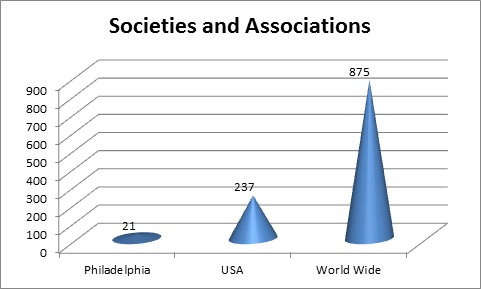
Universities Associated with Pediatric Care and Pediatric Infectious Disease in Philadelphia
· Philadelphia University
· Cairn University
· Thomas Jefferson University
· Cheyney University
· Delaware Valley University
· Eastern University
· Gwynedd-Mercy College
· Haverford College
· Immaculata University
· Lincoln University
· Neumann University
· Rowan University
· Rutgers University
· Stockton University
· Strayer University
Universities and Hospitals Associated with Pediatric Care and Pediatric Infectious Disease in USA
· Harvard University
· Stanford University
· Johns Hopkins University
· University of California—San Francisco
· University of Pennsylvania
· Washington University in St. Loui
· Yale University
· Columbia University
· Duke University
· University of Chicago
· University of Washington
· University of California—Los Angeles
· New York University
· Vanderbilt University
· University of Pittsburgh
· University of California—San Diego
Top Universities associated with Pediatric Care and Pediatric Infectious Disease Worldwide
· Harvard University
· University of Oxford
· University of Miami
· Yale University School of Medicine
· University of Minnesota
· Miller School of Medicine
· University of Kentucky
· University of Ottawa
· University of British Columbia
· University of Calgary
· Université de Montréal
· University of Alberta
· University of Manitoba
· University of Toronto
· McGill University
· University of Illinois
· John Hopkins University
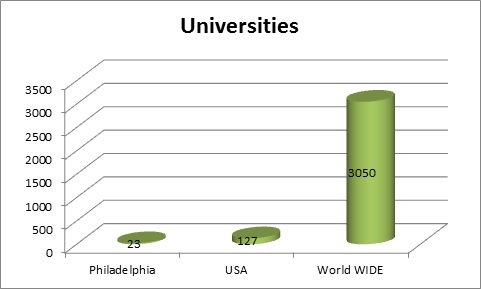
Hospitals Associated with Pediatric Care and Pediatric Infectious Disease in Philadelphia
· Hospital at the University of Pennsylvania - Penn Presbyterian
· Thomas Jefferson University Hospital
· Christiana Care Hospital
· Lankenau Medical Center
· Bryn Mawr Hospital
· Hahnemann University Hospital
· Grand View Hospital
· Chester County Hospital
· Paoli Hospital
· Pennsylvania Hospital
Hospitals Associated with Pediatric Care and Pediatric Infectious Disease USA:
· Sonoma Developmental Center
· Porterville Developmental Center Hospitals
· Lanterman Developmental Center
· Fairview Developmental Center
· Cedars Sinai Medical Center
· Laguna Honda Hospital and Rehabilitation Center
· Loma Linda University Medical Center
· Lac+Usc Medical Center
· Sharp Memorial Hospital
· Kaiser Fnd Hosp – Fontana
· Hospitals Associated with Pediatric Infectious Diseases in World Wide:
· Johns Hopkins Hospital Baltimore U.S
· Chris Hani Baragwanath Hospital Johannesburg South Africa
· Stanford Hospitals and Clinics U.S
· Great Ormond Street Hospital London UK
· University of Texas MD Anderson Cancer Centre Houston U.S
· Harvard Medical School Boston U.S
· Karolinska Hospital, Stockholm, Sweden
· The Priory UK
· Bumrungrad International Hospital Bangkok Thailand
· Cedars-Sinai Medical Center Los Angeles U.S
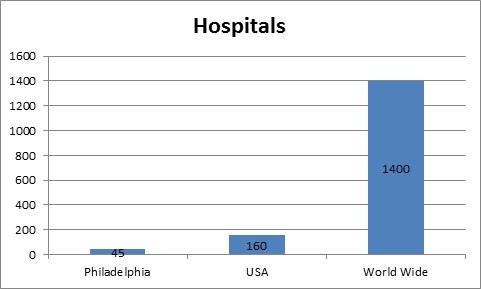
Industries Associated with Pediatric Care and Pediatric Infectious Disease in Philadelphia
· Pediatric Preclinical Testing Consortium
· NICHD-BPCA Pediatric Formulation
· Avid Radiopharmaceuticals
· Impax Laboratories
Industries Associated with Pediatric Care and Pediatric Infectious Disease in USA
· Gilead Sciences
· Johnson & Johnson
· Pfizer
· Roche
· Novartis
· Amgen
· Merck & Co.
· Sanofi
· Lilly
· Novo Nordisk
Industries Associated with Pediatric Care and Pediatric Infectious Disease Worldwide
· Bristol myers squibb
· Amgen
· Biogen Idec
· Celgine corporation
· Merk & co
· Gilead sciences
· Novartis
· Sanofi
· AstraZeneca
· Teva
· Novo Nordisk
· Boehringer Ingelheim
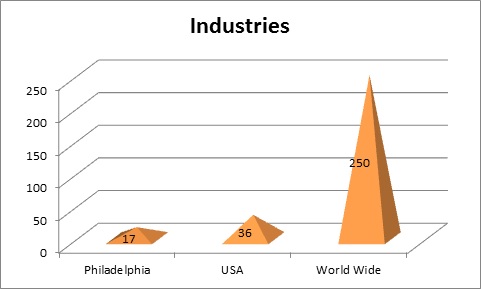
Estimated Market Growth of Pediatric Care and Pediatric Infectious Disease
According to the new research report "Pediatric Infectious Disease Diagnostics Market by Product (Instruments, Reagents, Services, Software), Application (Hepatitis C, AIDS, Tuberculosis), Technology (PCR, INAAT, DNA Sequencing, Hybridization), End User (Hospital, Laboratories) - Global Forecast to 2019" published by Markets and Markets, The Pediatric Infectious Disease Diagnostics Market is poised to reach $18,156.2 Million by 2019 from $12,422.8 Million in 2014, at a CAGR of 7.9% from 2014 to2019.
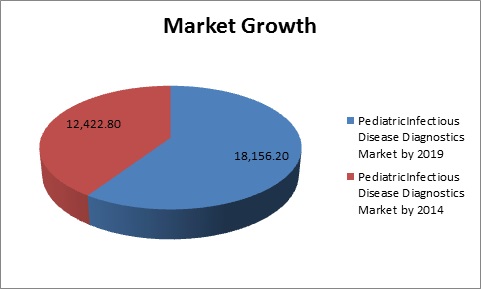
Conference Highlights
- Pediatric Infectious Diseases
- Pediatric Allergy and Immunology
- HIV Infection
- Pediatric Care
- General Pediatrics and Adolescent Medicine
- Pediatric Hematology/Oncology
- Pediatric Critical Care and Emergency Medicine
- Pediatric Gastroenterology and Nutrition
- Pediatric Nephrology/Urology
- Neonatology
- Pediatric Cardiology and Genetics
- Pediatric Pulmonology
- pediatric Surgery
- Pediatric Endocrinology and Rheumatology
- Pediatric Neurology
- Pediatric Ophthalmology and Dermatology
- Pediatric Psychiatry and Radiology
- Pediatric Nursing
To share your views and research, please click here to register for the Conference.
To Collaborate Scientific Professionals around the World
| Conference Date | August 24-25, 2016 | ||
| Sponsors & Exhibitors |
|
||
| Speaker Opportunity Closed | Day 1 | Day 2 | |
| Poster Opportunity Closed | Click Here to View | ||
Useful Links
Special Issues
All accepted abstracts will be published in respective Our International Journals.
- Journal of Infectious Disease and Theraphy
- Journal of Pediatric and therapeutics
- Journal of Neonatal Biology
Abstracts will be provided with Digital Object Identifier by







